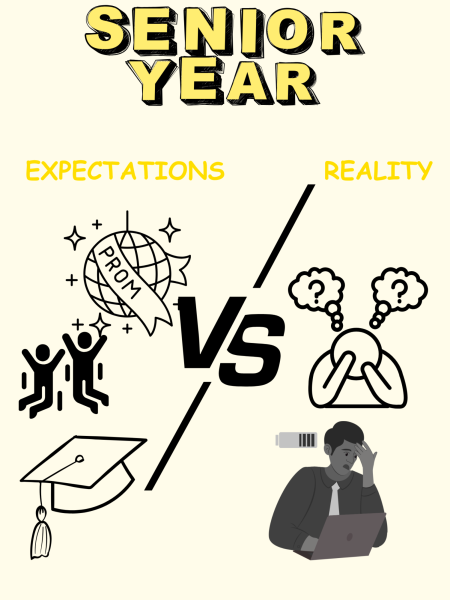The Reliability of the SAT
Introduced in 1926, the Scholastic Assessment Test (SAT) was created with the intention of testing every student’s abilities on an equal playing field, both relative to one another as well as worldwide. However, recently, standardized tests such as the SAT have become more and more controversial in the test results. For example, when the scores were released for the June SAT, many students noticed something off: they missed the same number of questions as on previous tests, but their scores were lower. In some cases, students answered more questions correctly only to see their scores go down. This conflict resulted into one of the largest movements relating to the SAT known as #rescorejunesat.
Hi – We will not be rescoring the June SAT. Your results would be the same.
— The College Board (@CollegeBoard) July 12, 2018
Senior Bryant Perez said, “We focus so much on the SAT, but we can never prepare for equating. It’s something that we don’t know about until we get our scores.”
To explain the story behind the #rescorejunesat movement, one should first know about SAT curving. The curving process with the SAT is commonly referred to equating, and according to the SAT website, “Equating makes sure that a score for a test taken on one date is equivalent to a score from another date. So, for example, a single incorrect answer on one test could equal two or three incorrect answers on a more difficult test.” On the other hand, equating is also the reason why some students may miss a few questions, but still receive a perfect score.
Mr. You said, “I understand why tests like the June SAT occur. The test writers, who are trying their hardest, are going to make some SATs easier than others. Nonetheless, if it were up to me, regardless of the test difficulty, the grading should be done the same.”
The June SAT’s scoring quickly became very controversial after it was released. The problem wasn’t that the SAT was too hard, but rather it was too easy. According to a blog relating to the June SAT published by the College Board, “While we plan for consistency across administrations, on occasion there are some tests that can be easier or more difficult than usual.” When comparing other test scores, it becomes apparent that the June SAT was harsher for missing questions. To put this into perspective, missing one question on the math section of the October 2017 SAT still guaranteed a perfect score of 800, but the exact same scenario on the June SAT resulted in a score of 770. In other words, missing one question on the math portion of the June SAT meant losing 30 points. There was a similar anomaly with the Reading/Writing score because, again, there were too many easier questions, and four test questions were actually dropped from the scoring because there were problems with them, according to College Board.
Senior Amy Texzocotitla explains, “It’s unfair to the students who get the easier test. If they (College Board) think their test is easier or harder, they should balance it to make it fairer. This would result in people not getting angry in the first place.”
Here is information for the students who reached out with questions about their June SAT scores. pic.twitter.com/ngXywO88ji
— The College Board (@CollegeBoard) July 12, 2018
60 seniors were polled concerning information of the SAT, with a 95% confidence level and a 6.701% margin of error. Nonetheless, the majority of the seniors sampled shared a growth in their SAT score and their percentile. On the other hand, most of the sample agreed that College Board should knowingly administer an easier SAT. Moreover, the majority of the sample also agreed that College Board should keep the same scoring across all SATs regardless of the difficulty.
In light of this, it is important to keep a positive mindset considering that some highly selective colleges are denouncing the importance of the SAT essay and/or the SAT itself such as Yale, Chicago University, Mills College, and many more. (Click here for more universities) Furthermore, it doesn’t make good business sense or ethical sense for the company to question the reliability of their own exam after so many years.
Mr. You said, “I think that colleges making the SAT optional is both good and bad. The good is that it demonstrates that the SAT is a perfect indicator of academic merit. The SAT is geared towards affluent families. The bad part of this trend is, it’s tough to evaluate students from less competitive schools to students from different schools with varying levels of competitiveness. The SAT allows students from less competitive schools to prove themselves.”
According to an article by Axios, “As schools pursue low acceptance rates, and students complain about testing costs, universities have increasingly chosen to make testing optional — including Ivy League schools. In 2016, Columbia became the second Ivy League school to drop the SAT’s subject tests and essay requirement. Yale dropped its essay requirement earlier this month. Harvard loosened its requirements in 2014, allowing students to forgo taking two tests if it causes financial hardship.”
Texzocotitla said, “It kind of makes me less motivated for the SAT when schools become test optional. This makes me realize that I could just apply and save myself the stress of the SAT.”
Since the release of the June SAT scores, many students and parents have been expressing their frustrations online in various forums. In fact over 30,000 students have even joined an online petition attacking the College Board for its scoring practices. This petition continues to grow with each day. Ergo, proving that scenarios such as the June SAT have prompted some to question the reliability of standardized tests.
However, Mr. You is clear to point out that the SAT isn’t the only predictive success factor in college. He states, “The SAT is similar to the drivers’ permit test as both are multiple choice tests. Both are meaningful in their own way, but they don’t define you. After you take the drivers’ permit test, you still have to take the driving test in person to get your license. This is similar to the fact that even after you get in to a university with your SAT score, you still have to get the grades to earn your degree.”
— The College Board (@CollegeBoard) July 12, 2018

Fun Facts:
I love writing poetry and reading poems.
I am the first person to be the Editor-In-Chief two years in a row for our school newspaper.
...




































